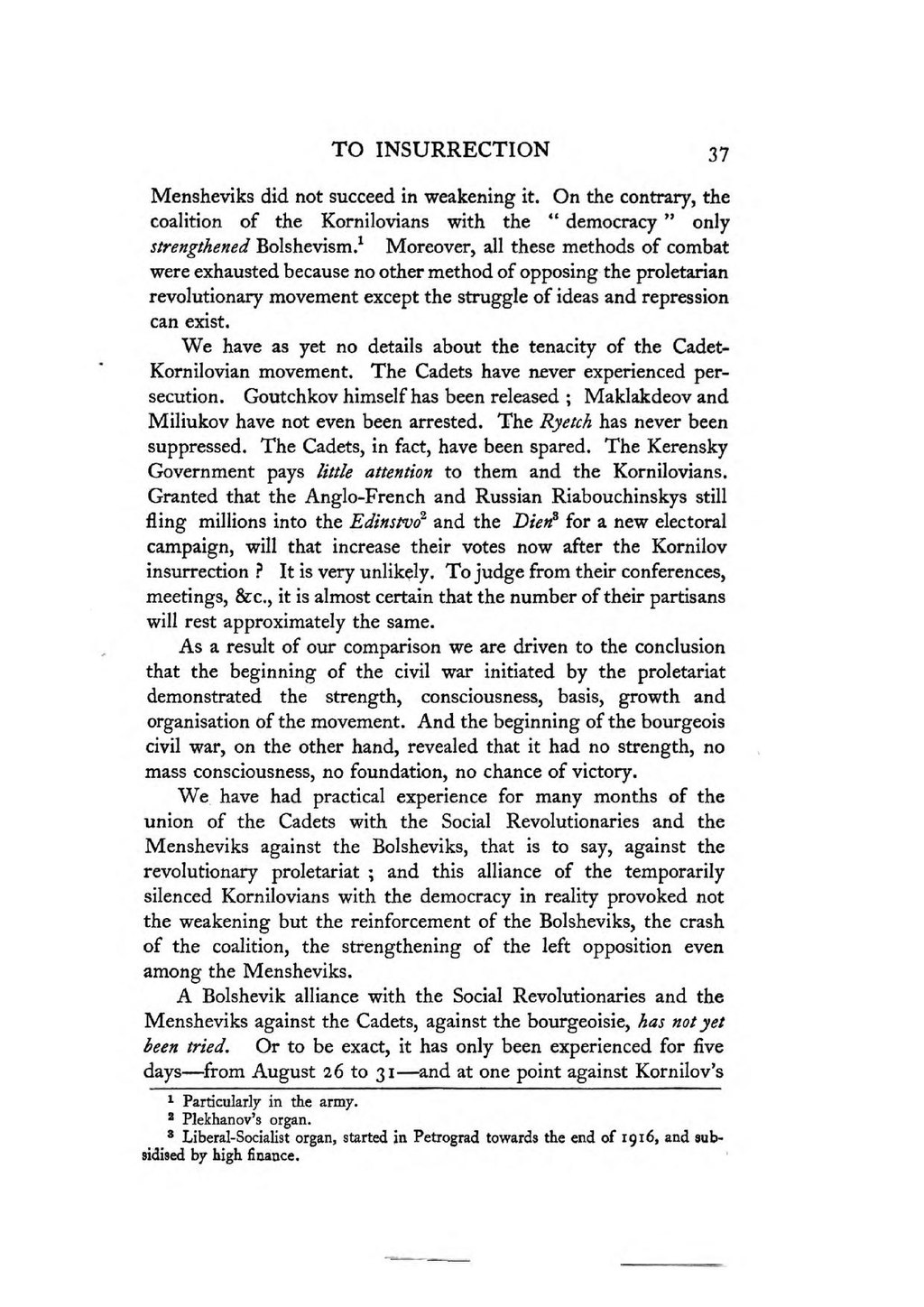Mensheviks did not succeed in weakening it. On the contrary, the coalition of the Kornilovians with the "democracy" only strengthened Bolshevism.[1] Moreover, all these methods of combat were exhausted because no other method of opposing the proletarian revolutionary movement except the struggle of ideas and repression can exist.
We have as yet no details about the tenacity of the Cadet-Kornilovian movement. The Cadets have never experienced persecution. Goutchkov himself has been released; Maklakdeov and Miliukov have not even been arrested. The Ryetch has never been suppressed. The Cadets, in fact, have been spared. The Kerensky Government pays little attention to them and the Kornilovians. Granted that the Anglo-French and Russian Riabouchinskys still fling millions into the Edinstvo[2] and the Dien[3] for a new electoral campaign, will that increase their votes now after the Kornilov insurrection? It is very unlikely. To judge from their conferences, meetings, &c., it is almost certain that the number of their partisans will rest approximately the same.
As a result of our comparison we are driven to the conclusion that the beginning of the civil war initiated by the proletariat demonstrated the strength, consciousness, basis, growth and organisation of the movement. And the beginning of the bourgeois civil war, on the other hand, revealed that it had no strength, no mass consciousness, no foundation, no chance of victory.
We have had practical experience for many months of the union of the Cadets with the Social Revolutionaries and the Mensheviks against the Bolsheviks, that is to say, against the revolutionary proletariat; and this alliance of the temporarily silenced Kornilovians with the democracy in reality provoked not the weakening but the reinforcement of the Bolsheviks, the crash of the coalition, the strengthening of the left opposition even among the Mensheviks.
A Bolshevik alliance with the Social Revolutionaries and the Mensheviks against the Cadets, against the bourgeoisie, has not yet been tried. Or to be exact, it has only been experienced for five days—from August 26 to 31—and at one point against Kornilov's
